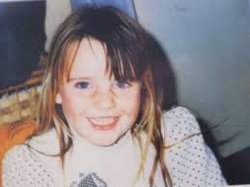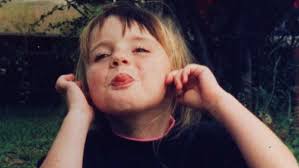Her mother, Kerrie Greenhill, fondly remembers Sheree as a talkative and spirited child. As her firstborn, Sheree held a special place in Kerrie's heart. She was a child who, despite her young age, had an awareness of the world around her. Kerrie instilled in Sheree an understanding of stranger danger, teaching her to be cautious, yet Sheree maintained her friendly demeanor, reflecting the innocence of her age.
The day of June 29, 1991, was a day like any other in Rosebud, with the tranquility of the town providing no hint of the tragedy that would soon unfold. Sheree set off on her bicycle to a nearby milk bar, a routine errand that represented her growing independence. This ordinary task, however, turned into a horrifying ordeal when she was abducted by Robert Arthur Selby Lowe, a man whose criminal history was as shocking as it was appalling.
The community's response to Sheree's disappearance was immediate and overwhelming. A massive search operation was launched, with volunteers, police, and emergency services combing the area for any sign of the missing child. Flyers bearing Sheree's image were distributed widely, with her description and the last known details of her whereabouts shared in the hope of finding her safe.
As days turned into weeks, and weeks into months, the hope of finding Sheree alive began to fade, yet the community's resolve to find her remained steadfast. The discovery of her body three months later in a stormwater drain was a devastating blow to everyone who had held onto the hope of her safe return.
The circumstances of Sheree's death were harrowing. Kidnapped, assaulted, and murdered by Lowe, her life was taken in the most brutal and senseless manner. Lowe's capture and subsequent trial brought some measure of justice, though it could never undo the damage done or the loss suffered by Sheree's family and the wider community.
The trial itself was a landmark case in Australian legal history, particularly due to the use of evidence obtained from Lowe's psychotherapy sessions. The court's decision to admit these recordings was controversial but ultimately deemed necessary to ensure justice for Sheree and the protection of the public.
Throughout the ordeal, Sheree's family, particularly her mother Kerrie, showed remarkable strength and courage. Kerrie's enduring love for her daughter and her commitment to seeking justice for Sheree's death were evident in her public pleas for information and her presence throughout the trial.
In the years following Sheree's death, her family and the community have worked to keep her memory alive. The memorial service held on the anniversary of her murder was a testament to the lasting impact she had on those who knew her. It was an occasion for collective mourning and remembrance, a chance to reflect on the joy Sheree brought to the world in her short life.
The impact of Sheree's story extended beyond her immediate family and community. It resonated across Australia, highlighting the need for greater awareness and protection of children. Her story became a catalyst for conversations about safety, the role of mental health professionals in criminal cases, and the legal system's handling of such sensitive and complex cases.
Margaret Hobbs, Lowe's psychotherapist, found herself in an unprecedented situation, torn between professional confidentiality and moral responsibility. Her decision to cooperate with law enforcement was a difficult one, but it was instrumental in securing a conviction. The book that was later published about her experience offered a unique insight into the psychological aspects of the case and the ethical dilemmas faced by professionals in such situations.
Remembering Sheree Joy Mandile is not only about reflecting on the tragedy of her untimely death but also about celebrating the life she lived, however brief. It is about acknowledging the deep void her loss left in the hearts of those who loved her and recognizing the ripple effect her story had on the wider community and beyond.
Sheree's story is a poignant reminder of the innocence of childhood and the responsibility of society to protect its most vulnerable members. Her legacy lives on in the hearts and minds of those who knew her and in the continued efforts to ensure the safety and well-being of children everywhere.
Written by: Alan Owen
Her mother, Kerrie Greenhill, fondly remembers Sheree as a talkative and spirited child. As her firstborn, Sheree held a special place in Kerrie's heart. She was a child who, despite her young age, had an awareness of the world around her. Kerrie instilled in Sheree an understanding of stranger danger, teaching her to be cautious, yet Sheree maintained her friendly demeanor, reflecting the innocence of her age.
The day of June 29, 1991, was a day like any other in Rosebud, with the tranquility of the town providing no hint of the tragedy that would soon unfold. Sheree set off on her bicycle to a nearby milk bar, a routine errand that represented her growing independence. This ordinary task, however, turned into a horrifying ordeal when she was abducted by Robert Arthur Selby Lowe, a man whose criminal history was as shocking as it was appalling.
The community's response to Sheree's disappearance was immediate and overwhelming. A massive search operation was launched, with volunteers, police, and emergency services combing the area for any sign of the missing child. Flyers bearing Sheree's image were distributed widely, with her description and the last known details of her whereabouts shared in the hope of finding her safe.
As days turned into weeks, and weeks into months, the hope of finding Sheree alive began to fade, yet the community's resolve to find her remained steadfast. The discovery of her body three months later in a stormwater drain was a devastating blow to everyone who had held onto the hope of her safe return.
The circumstances of Sheree's death were harrowing. Kidnapped, assaulted, and murdered by Lowe, her life was taken in the most brutal and senseless manner. Lowe's capture and subsequent trial brought some measure of justice, though it could never undo the damage done or the loss suffered by Sheree's family and the wider community.
The trial itself was a landmark case in Australian legal history, particularly due to the use of evidence obtained from Lowe's psychotherapy sessions. The court's decision to admit these recordings was controversial but ultimately deemed necessary to ensure justice for Sheree and the protection of the public.
Throughout the ordeal, Sheree's family, particularly her mother Kerrie, showed remarkable strength and courage. Kerrie's enduring love for her daughter and her commitment to seeking justice for Sheree's death were evident in her public pleas for information and her presence throughout the trial.
In the years following Sheree's death, her family and the community have worked to keep her memory alive. The memorial service held on the anniversary of her murder was a testament to the lasting impact she had on those who knew her. It was an occasion for collective mourning and remembrance, a chance to reflect on the joy Sheree brought to the world in her short life.
The impact of Sheree's story extended beyond her immediate family and community. It resonated across Australia, highlighting the need for greater awareness and protection of children. Her story became a catalyst for conversations about safety, the role of mental health professionals in criminal cases, and the legal system's handling of such sensitive and complex cases.
Margaret Hobbs, Lowe's psychotherapist, found herself in an unprecedented situation, torn between professional confidentiality and moral responsibility. Her decision to cooperate with law enforcement was a difficult one, but it was instrumental in securing a conviction. The book that was later published about her experience offered a unique insight into the psychological aspects of the case and the ethical dilemmas faced by professionals in such situations.
Remembering Sheree Joy Mandile is not only about reflecting on the tragedy of her untimely death but also about celebrating the life she lived, however brief. It is about acknowledging the deep void her loss left in the hearts of those who loved her and recognizing the ripple effect her story had on the wider community and beyond.
Sheree's story is a poignant reminder of the innocence of childhood and the responsibility of society to protect its most vulnerable members. Her legacy lives on in the hearts and minds of those who knew her and in the continued efforts to ensure the safety and well-being of children everywhere.
Written by: Alan Owen
Inscription
Aged 6 years
Gravesite Details
Deceased ID
764
Site
223
Surname
BEASLEY
Given Names
SHEREE JOY
Date of Birth
Date of Death
29 Jun 1991
Age Years
6
Age Months
0
Gender
Female
Date Interred
18 Oct 1991
Religion
Unknown
Cemetery
MORNINGTON
Section
Lawn Flush Marker
Row
1













